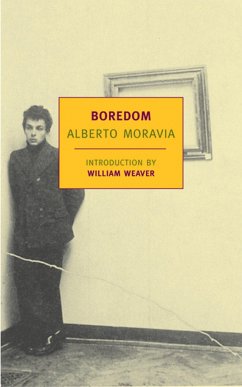The novels that the great Italian writer Alberto Moravia wrote in the years following the World War II represent an extraordinary survey of the range of human behavior in a fragmented modern society. Boredom, the story of a failed artist and pampered son of a rich family who becomes dangerously attached to a young model, examines the complex relations between money, sex, and imperiled masculinity. This powerful and disturbing study in the pathology of modern life is one of the masterworks of a writer whom as Anthony Burgess once remarked, was "always trying to get to the bottom of the human imbroglio."








